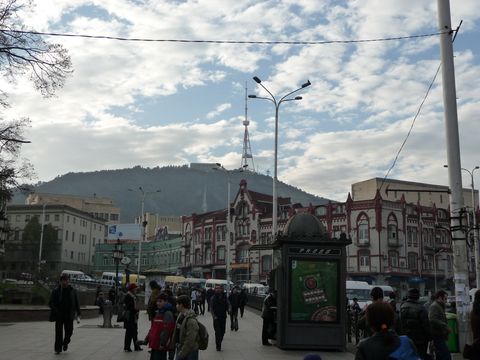
|
Managing Public Investments at the Municipal Level in Georgia
Supported by: SlovakAid, a Slovak Ministry of Foreign Affairs' Programme The project "Managing Public Investments at the Municipal Level in Georgia" has been implemented by NISPAcee, in co-operation with the Project Partner Institution "The National Association of Local Authorities of Georgia” (NALAG). The project is supported by SlovakAid; began in November 2010, and the project's activities are scheduled to last for a period of one-and-a-half years. Project background:
Such a huge gap in the functional capacities of Georgian local officials may undermine the implementation of a regional development strategy and hinder the process of Georgian integration into the EU. This will also have a negative impact on the popular support for the newly-elected local governments, which may result in political instability and a further increase in poverty within the regions of Georgia. Therefore, this project proposal aims to provide local financial officers with the necessary skills in the management of public investments, which will have multiple effects for Georgia. It will contribute to Georgia's European integration and simultaneously, will guarantee an active role for Georgian Local Authorities in regional development and fighting poverty at the local level.
· Training module on managing investments at the municipal level in Georgia. · Training materials on managing investments at the municipal level in Georgia. · Up to 10 Georgian trainers prepared to lead future training courses on public investments based on EU principles. · Up to 60 Georgian financial officials from 4 municipalities understanding the principles of managing public investments in the European Union and their application in Georgia. · Guide on Public Investments for local officials in Georgia.
· Training needs assessment · Training module · Training materials · Training of trainers · 4 pilot training sessions implemented in 4 selected municipalities · National conference · Guide on Public Investments for local officials
- Georgian municipalities – 4 directly within the project: Kutaisi, Rustavi, Poti, Batumi, and others after the project ends, by utilising the project outputs. - 60 Georgian local financial officials. - Georgian partner organisation NALAG. - 10 Georgian trainers. |
© NISPAcee 2021
Web design and administration by Jan Andruch / FLOYD-Studio.com


